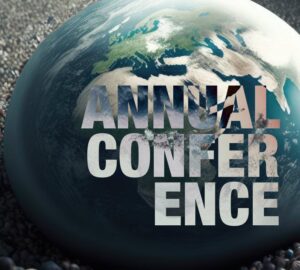
Against the background of war and rising geopolitical tensions, the climate and biodiversity catastrophe, the cost of living crisis and deepening social and global inequalities, this year’s conference will address the profound implications of these changes for the future of the EU, with special reference to the deepening crisis of social reproduction.
This year’s EuroMemo Group conference will be jointly hosted with University of Naples ‘Parthenope’ and will take place on 27th – 28th September 2023 (Wednesday – Thursday) in Naples/Italy.
To sign up for the conference, message info@euromemo.eu to get the registration form.
The conference fees that help cover the cost of organizing the event can now be paid online.
Conference dates and location: 27 – 28 September 2023, Naples/Italy
This year’s conference venue will be:
Villa Doria d’Angri
Via Francesco Petrarca 80
80123 Napoli
Wednesday, 27 September 2023
Villa Doria d’Angri
Via Francesco Petrarca 80
80123 Napoli
9:00 am – 09:30 am Conference Registration
09:30 am – 12:30 pm Opening Plenary
Welcome Address: Professor Antonio Garofalo (Rector, University of Naples “Parthenope”)
Part I – The Political and Economic State of the Union
Chair: Werner Raza
Q&A Session
11:15 am – 11:30 pm Coffee Break
Part II – Panel Discussion: The political and economic situation in Italy
Chair: Claudio Cozza
Interview with Giorgio Airaudo, General Secretary of CGIL Piedmont (in Italian language with consecutive translation)
12:30 pm – 01:30 pm Lunch Break
01:30 pm – 05:30 pm Parallel Workshops
07:00 pm Conference Dinner: Ristorante Hache, Via Partenope 6, Naples
Thursday, 28 September 2023
10:00 am – 11:30 am Plenary on policy proposals from workshops
Chairs: Marica Frangakis, Magnus Ryner
11:30 am – 12:00 pm Coffee break
12:00 pm – 01:30 pm
Final Plenary “The crisis of social reproduction in the EU (ageing, pensions, migration, housing, the crisis of care systems, the role of social mobilizations)”
Chair: Maria Karamesini (tbc)
End of Conference
02:30 pm – 03:30 pm EuroMemo Legal Association – General Assembly Meeting
03:30 pm – 06:00 pm Planning meeting: EuroMemorandum 2024
Key themes of EU policy will be discussed within six parallel workshops during the first day of the EuroMemo Group Conference.
PARALLEL WORKSHOPS, 27 September, 2.00 pm – 6.00 pm
Workshop 1: Macroeconomic Policies (Chair: Magnus Ryner)
Workshop 2: The crisis of social reproduction in the EU (Chair: Maria Karamessini)
Workshop 3: The political economy of Italy (Chair: Valeria Cirillo)
Workshop 4: Radical approaches to the green and digital transformations (Chair: Ronan O’Brien)
Workshop 5: The changing world order and its effects on the EU (Chair: Heikki Patomäki)
Workshop 6: The discourse and policies on migration and refugees in the aftermath of the war in Ukraine’ (Chair: Mahmood Messkoub)
Background Papers:
Afraim Mammadow: New Energy Provider of Europe: Azerbaijan
Yannis Tolios (MAHOME, Athens): The transition to a multipolar world, the role of the EU and the case of Greece
Janusz Tomidajewicz: EU socio-economic policy in the face of the challenges of the struggle for a new world
division
You can find some practical information for Napoli’s visitors here
You can find our information on Hotel accommodation and Conference Venue in Napoli here
You can find information for taxi tariffs in Naples here.
You can find and pay the conference fee here.
** Call for papers closed for 2023 **
We would like to invite you to attend the conference and to submit paper proposals for contributions to the workshops.
We invite proposals for papers that address any aspect of the conference theme War, the climate catastrophe and the crisis of social reproduction: how should the EU cope with the polycrisis?” In particular, we encourage submissions that relate to recent European developments that pertain to one of the following topics:
Proposals for papers together with a short abstract (maximum 250 words) should be submitted by 16 June 2023 to info@euromemo.eu.
We strongly encourage applications of participants from CEE countries and different networks of heterodox economists. If possible, please indicate the topic which the proposal is intended for. If accepted, completed papers should be submitted by 31 August 2023.
We strongly encourage participants to submit short papers (5000 – 6000 words) and to explicitly address policy implications.
If you would like to submit an abstract and/ or participate in the conference, please fill in the registration form (only available until the deadline for this call for papers), and send it to to info@euromemo.eu.
Please note that there is no deadline for registering for participation only.
All submitted abstracts will be reviewed by the Steering Committee of the EuroMemo Group. Accepted papers will be published on the conference website and there is also the possibility to publish selected papers presented at the conference within the EuroMemo Group Discussion Paper Series.
Please note that there will be a conference fee to cover the cost of the conference.
Our opening and closing panel discussions are uploaded by Parthenope University of Naples on youtube. HERE you can find the link.
Click below to watch: